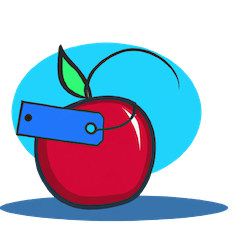As educators, we are constantly searching for new and effective ways to enhance our students’ learning experience. With the introduction of technology in education, traditional teaching methods like flashcards might have taken a backseat. However, flashcard games have proven to be a powerful tool in engaging and motivating students, especially in grades 6-8. In this blog post, we will delve into the benefits of using flashcard games in the classroom and provide practical insights and strategies for teachers to incorporate them effectively.
Why Flashcard Games Work for Grades 6-8?
Before we dive into the specifics, let’s understand why flashcard games are particularly effective for students in grades 6-8. As students enter middle school, they are often dealing with increased academic pressure and a more challenging curriculum. Flashcard games provide an interactive and fun way for students to review and retain information, ultimately improving their understanding and grades.
In addition, this age group is highly technologically savvy, making the use of flashcard games a natural fit in their learning process. These games provide a break from traditional teaching methods and offer a refreshing change for students to engage with the material in a way that feels more like a leisure activity than a learning task.
Innovative Flashcard Game Ideas for Grades 6-8
Now that we understand why flashcard games are an effective tool for grades 6-8, let’s explore some innovative ideas to incorporate them into your teaching:
- Classroom Charades: Divide the class into two teams and have students pick flashcards from a pile. One student from each team will act out the word or concept on the flashcard, and the team has to guess the correct answer. This game not only promotes team-building and cooperation but also encourages critical thinking and problem-solving skills.
- Memory Match: Create a deck of flashcards with matching pairs. Students have to flip over two cards at a time, trying to make a match. If they do, they get to keep the cards, and the student with the most pairs at the end wins. This game allows for repetition and reinforcement of concepts, making it an excellent study tool for exams.
- Flashcard Bingo: Create bingo cards with answers to the questions or concepts on flashcards. The teacher will read out the question, and students have to match it with the corresponding answer on their bingo cards. This game adds an element of competition and excitement, making it an effective review tool before a test or quiz.
The Benefits of Using Flashcard Games
Apart from being a fun way of reviewing and retaining information, flashcard games offer several other benefits for students in grades 6-8:
- Encourages Active Learning: Flashcard games require students to be actively engaged in the learning process rather than passively listening to a lecture. This promotes critical thinking, problem-solving, and higher-order thinking skills.
- Promotes Retention: The use of flashcards provides students with repeated exposure to the material, making it easier for them to remember and recall information when needed.
- Caters to Different Learning Styles: Flashcard games can be adapted to suit different learning styles, making it inclusive and effective for all students in the classroom.
- Boosts Confidence: Flashcard games can be used as an informal assessment tool, allowing students to showcase their knowledge and feel a sense of accomplishment.
For Teachers: Tips for Effective Implementation of Flashcard Games
Here are some tips for teachers to effectively incorporate flashcard games in their lesson plans:
- Set Clear Objectives: Before starting a flashcard game, ensure that the students understand the purpose and learning goals behind it. This will help them stay focused and actively engaged throughout the activity.
- Make it Fun: Remember, the whole point of using flashcard games is to engage students and make learning enjoyable. So, be creative, use props and interesting visuals, and keep the energy levels up!
- Provide Reinforcement: Review and reinforce the concepts covered in the flashcard games in subsequent lessons or activities to solidify students’ understanding.
- Personalize the Experience: Allow students to create their own flashcards to use in games. This not only adds a personal touch but also encourages students to take ownership of their learning.
Final Thoughts
In conclusion, flashcard games are an effective tool for engaging and motivating students in grades 6-8. They offer a fun and interactive way for students to review and retain information, ultimately improving their academic performance. As teachers, it’s essential to be creative and incorporate these games in our lesson plans to make learning more enjoyable and effective for our students. So, go ahead, and try out these flashcard game templates in your classroom, and witness the positive impact it has on your students’ learning experience.
Reflective Questions for Educators
- How can you adapt flashcard games to suit different learning styles in your classroom?
- How often do you use flashcard games as a review tool in your lesson plans? Can you incorporate them more consistently?
- What other innovative ideas can you come up with to use flashcard games in your teaching practice?
